In January, people on social media discussed the issue of diversity on bookshelves and authors who are published, under the hashtag #TooMuchSpace. BuzzFeed spoke to Muslim women authors from around the world about what they write, who they write for, and the challenges they face. Here's what they had to say.
Shelina Janmohamed
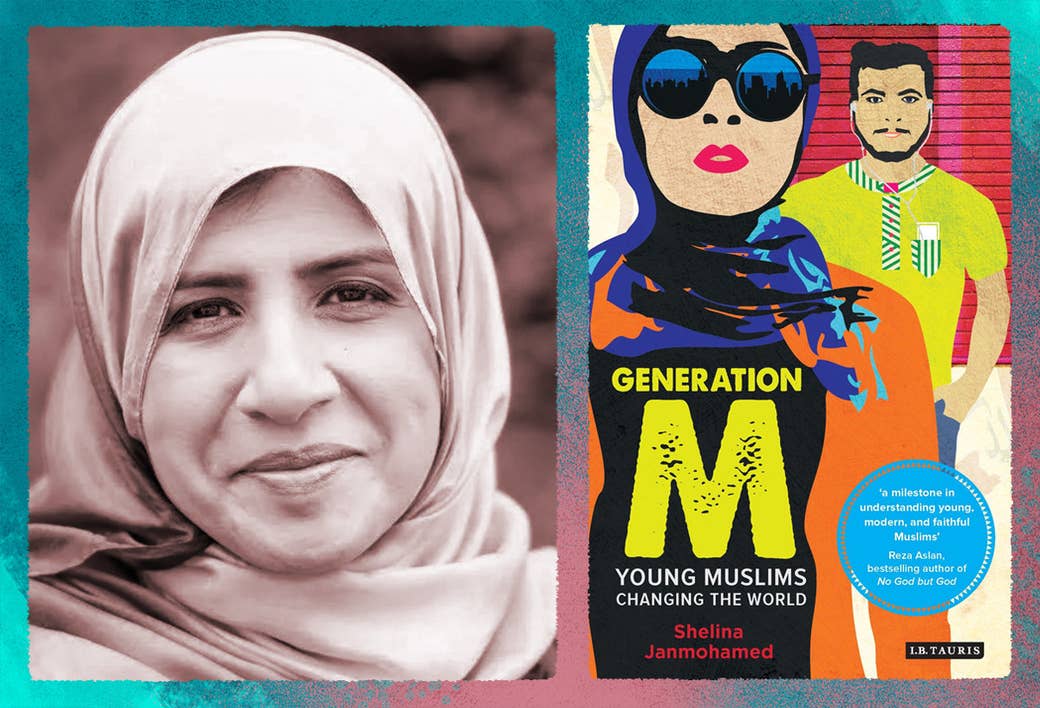
"Writing allows me to explore my own thoughts: I often find, when I am struggling to make sense of the world around me, that when I have to commit myself to paper it helps me to work out what I think. But I've also found it really important when you have a clear point of view, and that's something I've grown in confidence in delivering. You do share that with the world, because the world is so much richer when you have a range of points of view.
"I never really planned to be a writer, I kind of fell into it because I felt like the world needed to be changed and my writing could be part of that. So it's almost like an activist voice, and that's the reason I'm inspired to write.
"I never really planned to be a writer, I kind of fell into it because I felt like the world needed to be changed and my writing could be part of that."
"I think my writing resonates in particular with women, and I certainly write from the perspective that women's voices in general need to have more air time.
"My writing is about my story and I tend to make it very personal – it has a strong Muslim element to it and I wear that on my sleeve.
"But I find, as I did with Love in a Headscarf, people can really resonate with the human story, whether you're talking about it as a woman, or as a Muslim, or somebody living in Britain – those are just different ways to approach core human stories.
"Generation M was a continuation of the personal journey of exploring the world and in particular what it means to be young and Muslim. … What I discovered was that there were all these vibrant, dynamic, energetic, pioneering stories that happened to be being lived by young Muslims but nobody was joining the dots and telling those stories. That's what should come through in Generation M – not talking about Muslims through the prism of terrorism or security.
"I think the challenge for both Muslim women and the publishing industry – and I include in that the media – is to create space that Muslim women can tell stories [in] that are not about terrorism, not about burkas, and burkinis, and niqabs, and actually if they want to those can be stories about anything at all and don't have to be about being Muslim whatsoever."
Shelina Janmohamed's latest book is Generation M: Young Muslims Changing the World, published by I.B. Tauris.
Randa Abdel-Fattah
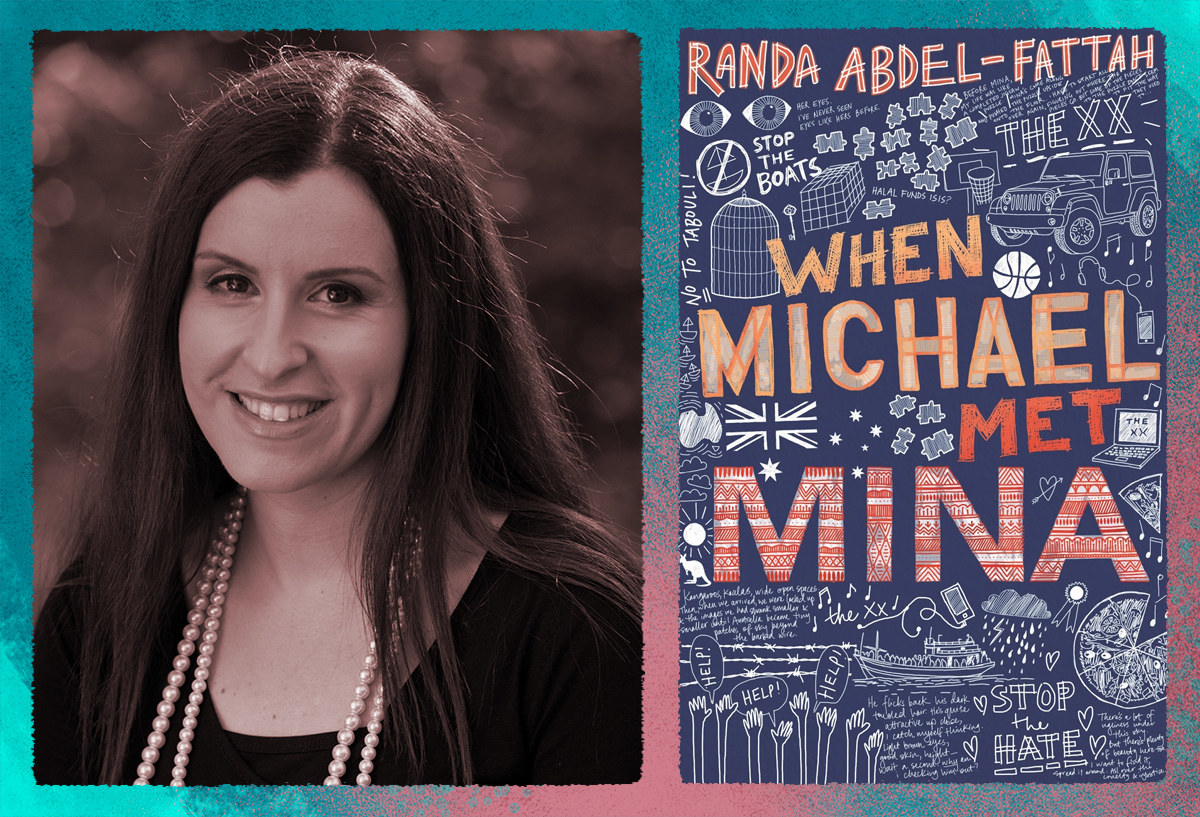
"My latest book is a young adult novel, When Michael Met Mina. Just over three and a half years ago I quit law and started a PhD to explore racism and Islamophobia in Australia. While I was conducting my fieldwork, interviewing people, attending anti-Islam and anti-refugee rallies, a character popped into my head.
"Well, two to be precise. One was a young Afghan refugee. A ‘boat person’ we see maligned and stigmatised by both sides of politics. Bright, fierce, courageous, scarred, she wouldn’t budge from my head. I thought about what it would mean for this young girl to have fled Afghanistan, grow up in western Sydney, only for me to then throw her into a private school in the lower north shore of Sydney. I called her Mina.
"The other person who popped into my head at one of the rallies I attended was a boy called Michael. As I interviewed people about their ‘fears of being swamped by boats’, about the ‘Islamisation of Australia’, about the so-called ‘clash of civilisations’, I wondered what it would mean to be a teenager growing up in a family peddling such racism and paranoia. How do you ‘unlearn’ racism? How do you find the courage to question your parents’ beliefs? How do you accept responsibility for learning about the world on your own terms? That’s when I decided to write a story that took these two characters, Michael and Mina, and threw them at each other.
"It's exciting times as we see more and more Muslim women writing, and not just writing 'as Muslim women' but simply as writers, exploring lives and stories that don't necessarily speak to a 'stereotype' that needs to 'debunked'."
"I started writing when I was a child. First published piece was a short story in a writing magazine when I was 12. I was thrilled to bits to see my name in print. As a teenager I continued writing, and I wrote the first draft of my first published book, Does My Head Look Big in This?, when I was 15.
"I'm currently co-writing the film adaptation of Does My Head Look Big in This? That has been a challenging experience, having to negotiate what the film industry knows about 'mainstream white audiences' and their expectations while adapting the novel to stay true to its message.
"It's exciting times as we see more and more Muslim women writing, and not just writing 'as Muslim women' but simply as writers, exploring lives and stories that don't necessarily speak to a 'stereotype' that needs to 'debunked'. I love that we are seeing writing that is subversive and edgy and fun."
When Michael Met Mina by Randa Abdel-Fattah is published by Pan Macmillan and is long-listed for the Indie Book Awards Young Adult 2017.
Amani Al-Khatahtbeh
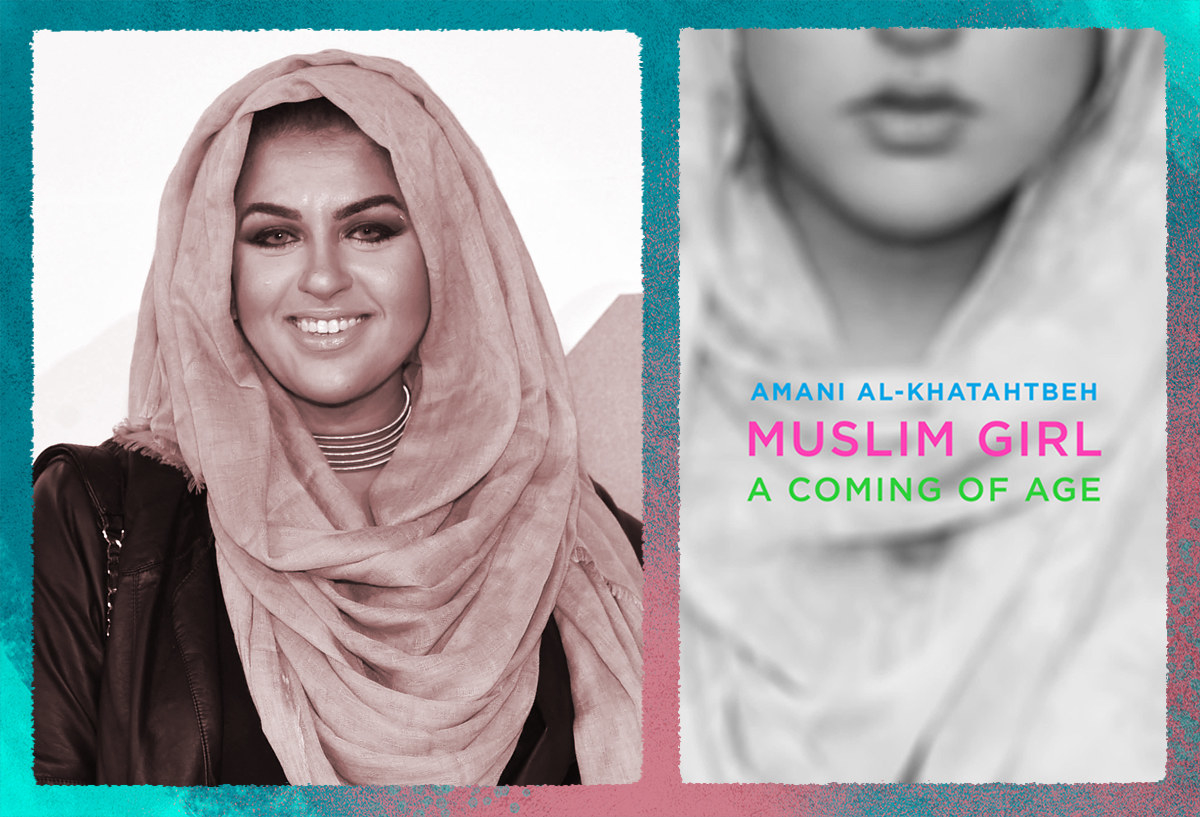
"The Muslim Girl book [Muslim Girl: A Coming of Age] to me encompasses the series of events that led to me starting Muslim Girl [the website] in the first place. It's about the experiences that both I and my family endured immediately after 9/11, and growing up in New Jersey really close to where the Twin Towers fell. It was definitely a stark experience growing up kind of under the shadow of Islamophobia, and really this book does in my opinion serve to chronicle that moment in history, such a pivotal crucial time for Muslims, and right at the heart of where the War on Terror was born.
"I feel we just haven't been able to have just a space for ourselves to have the conversation directly relevant to our lives.
"I wanted Muslim girls to be able to walk into a bookstore and see their identity emblazoned across the cover of it in neon letters. But also I did write it with the thought in mind I did want it to be something that non-Muslims could read and easily access, and that would allow them to be able to understand a lived experience – they otherwise might not feel like they have that connection to. I really wanted them to understand what it's like to be a Muslim woman in today's society.
“I wanted Muslim girls to be able to walk into a bookstore and see their identity emblazoned across the cover of it in neon letters."
"I think when it comes down to marginalised communities, what's personal for us is political. Inherently political. This book is the same – solely just being ourselves and speaking truth to power, and being true to our voices and own lived experiences, is in itself political.
"My publishers were referring to the book like a memoir as the category it falls into, but when I wrote the book I wanted to write a feminist manifesto. I wanted something that would crack open the lexicon of the way that we talk about issues of feminism or liberation and oppression and things like that, and on our terms as Muslim women. And that's what I really hope this book will contribute to the conversation."
Amani Al-Khatahtbeh is the founder of MuslimGirl.com. Her first book is Muslim Girl: A Coming of Age, published by Simon & Schuster.
Ayisha Malik
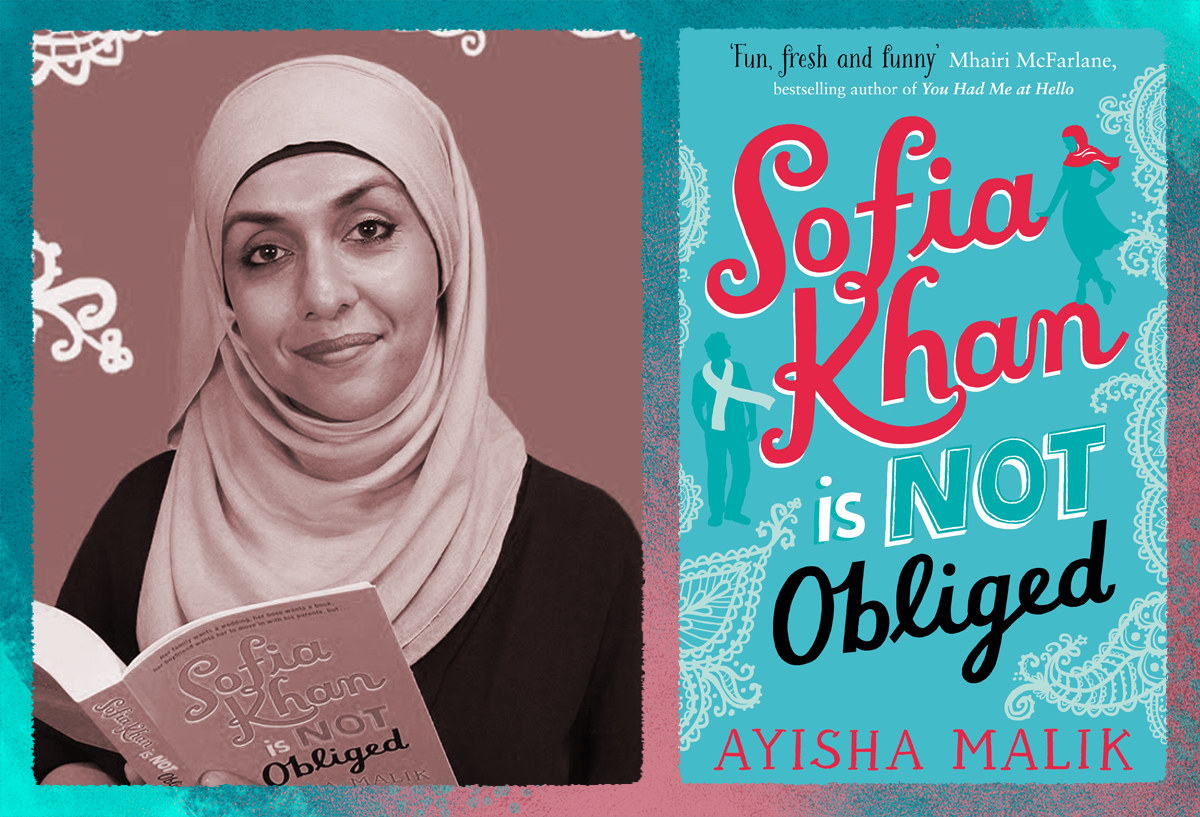
"I’m currently writing full-time, so I suppose I am living the writerly dream, because it’s always been my aim. My debut novel, Sofia Khan Is Not Obliged, was the result of my love for Bridget Jones, the absurd that borders on comic, and the experiences of modern Muslim women on the dating scene. It started out as something fun, but gradually I realised I could interweave the more serious matters in life within this seemingly comic framework; things like prejudice, belonging, family duty, and even death. I make it sound fun, don’t I?
"A lot of my stories seem to start with characters who I place in rather conflicting circumstances: Muslim woman dating in London, Pakistani/British Muslim woman married to Irish convert. I’ve just finished a young adult [YA] short story about a girl going to help in a refugee camp with her parents, who ends up becoming friends with a refugee. But I think I write about what most authors write about: struggle. Whether it’s small or big, with the self or with society, I like putting a group of people together who have such individual lives that they must inevitably clash, but not always in a bad way. I think that’s true to life, so it’s the kind of thing I like to explore.
"I think when you read you sometimes do it to understand a part of yourself that you can’t explain."
"I think when you read you sometimes do it to understand a part of yourself that you can’t explain. Or to recognise something of who you are in the characters you come across. It’s a very personal thing. The truths can be big or small, but they are always important and always give you that feeling of not being alone. I used to write because I wanted to understand things. I think I still write for the same reason. I also find I’m a lot more articulate on paper than in person."
Ayisha Malik's debut novel is Sofia Khan Is Not Obliged, published by Twenty7. Her next book, The Other Half of Happiness, is out later this year.
Na'ima B. Robert
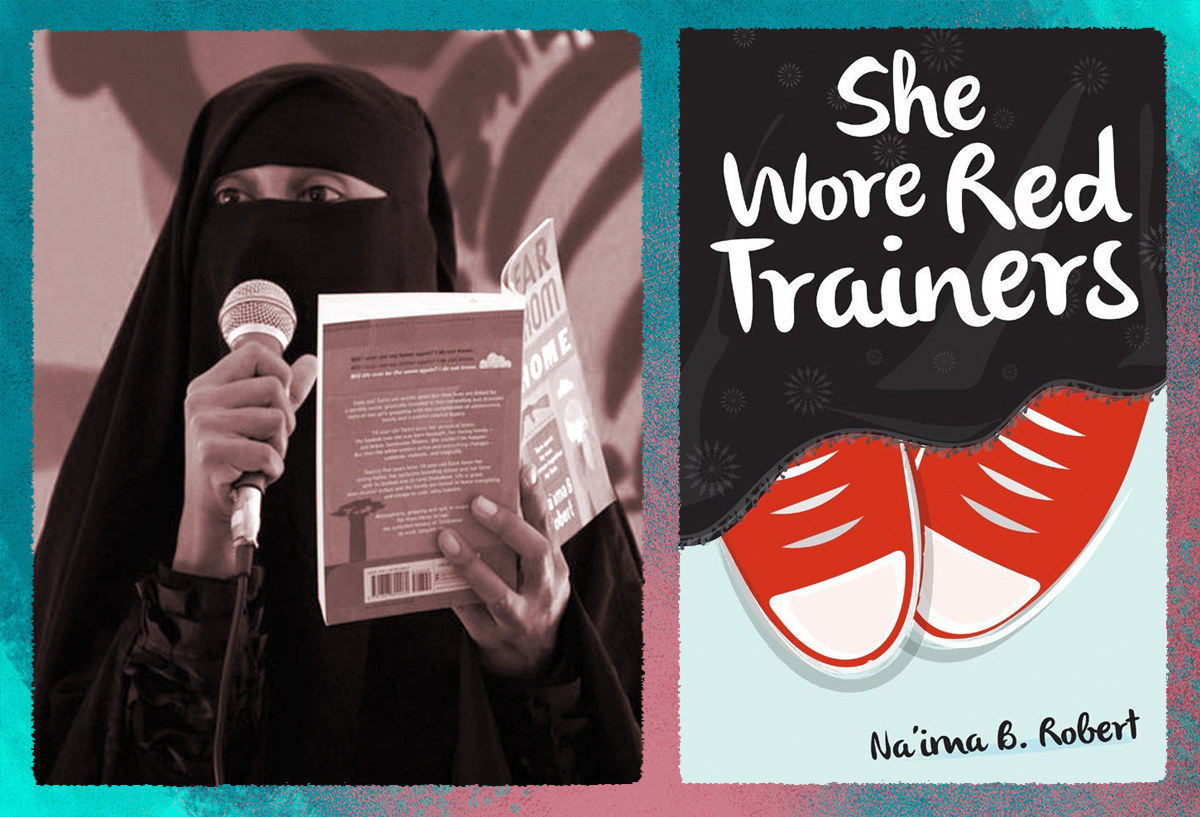
"I was born in the UK and grew up in Zimbabwe, and became Muslim in the UK, and have been writing for children since 2001 when my son was little. My main thing is writing multicultural children's and YA novels. I've also written my memoir, From My Sister's Lips.
"I wanted to be able to get books from the library that were beautiful and wondrous and spoke to my son's experience and identity – that's the bottom line.
"But there was nothing, there was nothing. I know for a fact there was nothing because that was 17 years ago, and if you went to the library, you'll find maybe two or three books on a stand maybe about the Hajj [the Islamic pilgrimage], maybe about the five pillars. But I'm from a literary background, I grew up steeped in stories, so for me, I loved the books of Michael Morpurgo, the illustrations of Christian Birmingham, and that quality, that beauty, that awe-inspiring children's literature. There was nothing like that from Muslims, or about Muslims, and so that's really what I went out to do.
"I wanted to be able to get books from the library that were beautiful and wondrous and spoke to my son's experience and identity – that's the bottom line."
"I like to write in prose and poetic prose, I like to use interesting words – all these literary forms, for me it's important we're able to read about ourselves in a way that is quality that has beauty in it.
"Now the landscape has changed so much from when I first started. My first YA novel … was about a Somali girl, and at the time there were no Somalis in literature anywhere, in children or young adult books. I've always tried to push the envelope, when it comes to characters and people of colour as main characters, and particularly in opening the door to Muslims, Muslim lifestyle, and Islam through story-telling."
Na'ima B Roberts' most recent book, She Wore Red Trainers, is published by Kube and is on the TES "50 books to diversify your class" reading list.
Umm Zakiyyah
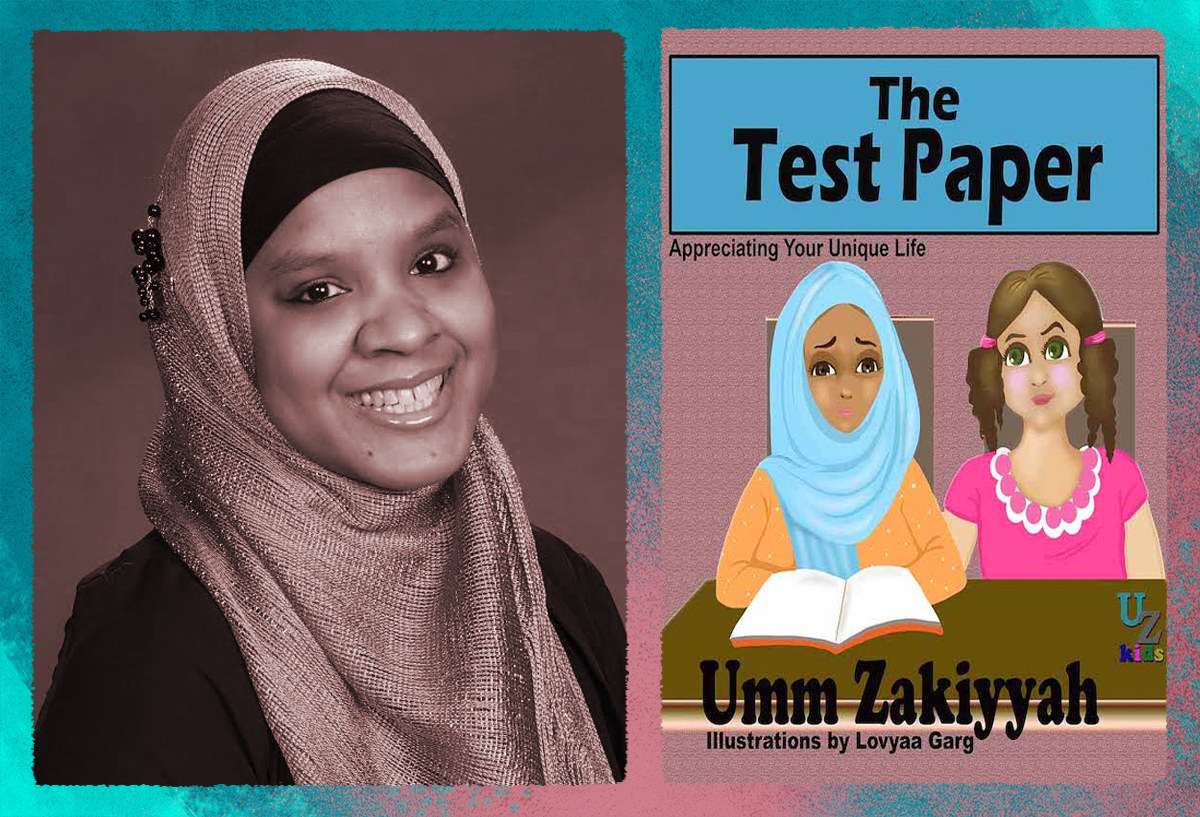
"For me, writing is an essential part of who I am. It is how I best express myself when I’m alone writing in my journal, as well as when I share my heart with the world. These reflections are often deeply personal and spiritual, and they form the inspiration of most of my writing.
"My first book, If I Should Speak, was published at the end of 2001 and is now part of a trilogy. Since then, I have written more than 15 books. … My latest published work, Reverencing the Wombs That Broke You, is a book is for survivors of parental and family abuse, particularly those who come from religious households. Too often these survivors are emotionally manipulated into withstanding harm and abuse from parents and family because the Qur’an says, 'Reverence the wombs that bore you.' This book poses the question: What if those same wombs broke you, and incited deep emotional trauma? What then?
"This book poses the question: What if those same wombs broke you, and incited deep emotional trauma? What then?"
"For me, the greatest challenge lies in balancing between crafting an engaging, page-turning story with meaningful, soul-touching themes. Each book presents a different challenge, but I find that I work through this with prayer, honest self-reflection, and writing from the heart. I find that when I’m able to be honest with myself about my own faults, as well as what troubles and moves me, I am better able to craft the type of story I want."
Umm Zakiyyah recently published excerpts from her personal journal in Faith. From the Journal of Umm Zakiyyah.
Asmaa Hussein
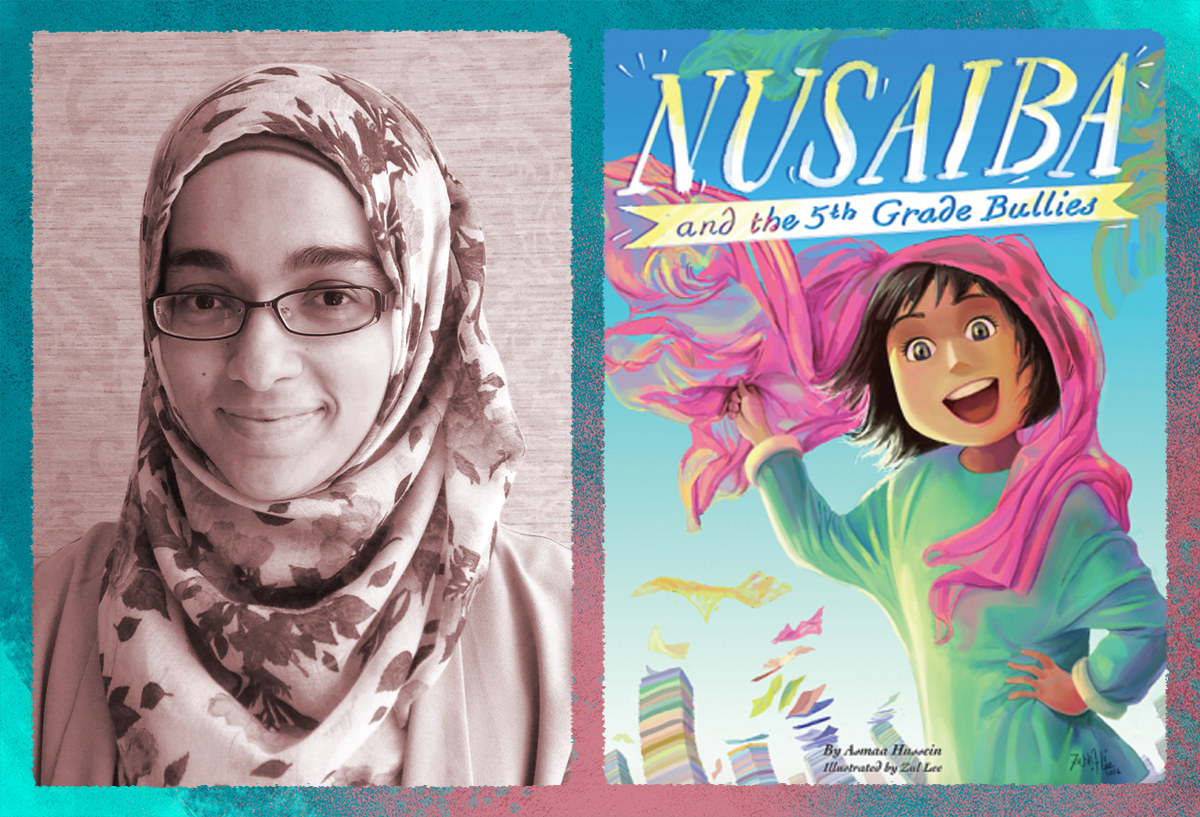
"I am a widow and I have a 4-year-old daughter, Ruqaya. When I started my small publishing company, I named it after her: Ruqaya’s Bookshelf.
"When I lost my husband in the aftermath of the Egyptian coup d’état of 2013, I began openly writing about my trauma. I couldn’t bring myself not to write. It became an incessant and urgent need to gather the pain that was crowding my chest, mould it into words, and let it out into the open air.
"I was in a lot of pain, and writing helped me understand that pain because I was able to physically look at it on a page of words. I would write articles and Facebook posts. Eventually my readers repeatedly asked me to compile my writings into a book, so I did.
"I was in a lot of pain and writing helped me understand that pain because I was able to physically look at it on a page of words."
"In terms of my children’s books, I wanted to write books that I thought my daughter would enjoy. We have tons of didactic books on morals and Islam, which are fine, but I wanted to read her something different. I wanted her to have interesting and exciting and funny books with Muslim protagonists who looked like her and had the same names as her and her family/friends. She’s loved books since she was old enough to chew on them! And I wanted to make sure that she felt her identity as a Muslim was represented and celebrated in her books."
Asmaa Hussein's book Nusaiba and the 5th Grade Bullies is published by Ruqaya's Bookshelf.
Alison Vaughan
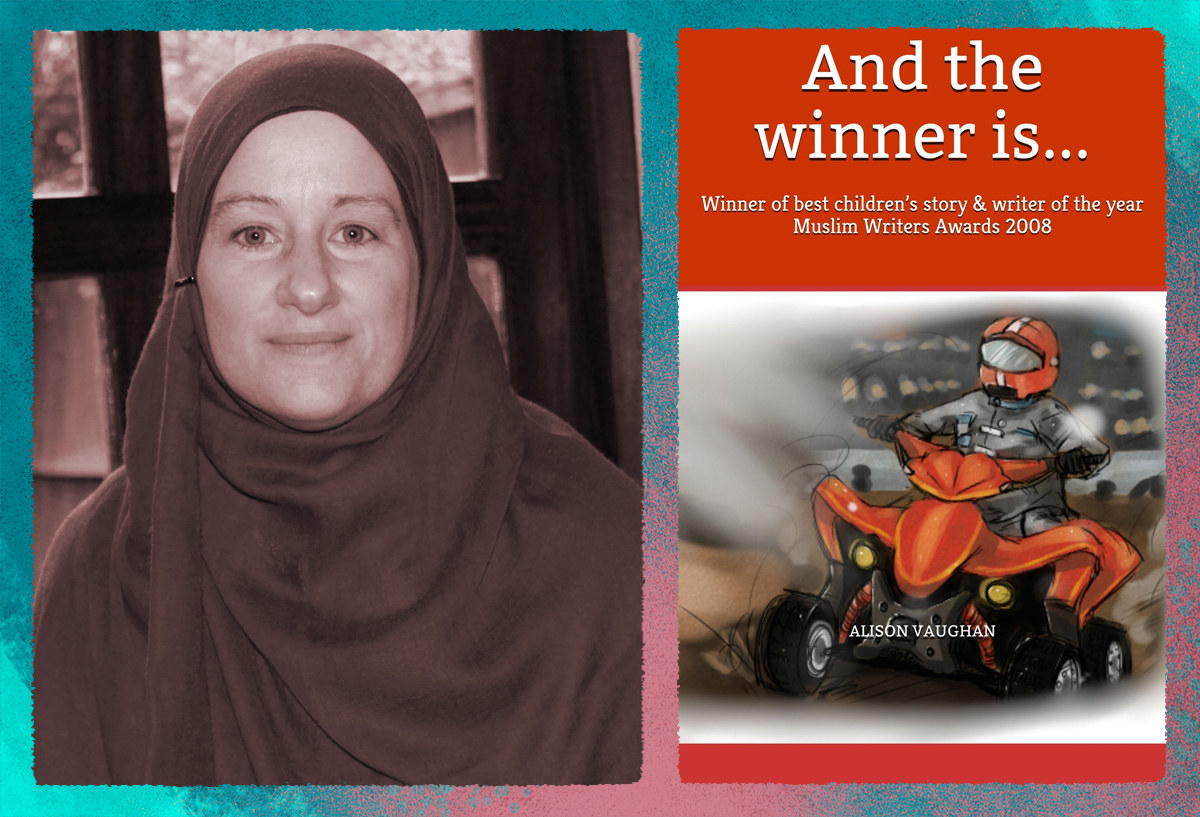
"I was home-educating my children and I wanted to write English comprehension story pieces with characters my children could relate to. But I also wanted them to learn about their Islamic faith at the same time. Basically, combining two subjects in one. I still have those comprehension pieces ready for publishing.
"I write children’s stories covering various life scenarios with Muslim characters and aspects of the Islamic faith such as relying upon Allah [God], the prayer, life changes, death, overcoming fear, charity, manners and morals, honesty, and so forth.
"I think many Muslim women writers – myself included – find it difficult to write about their faith in a way that does it justice without sounding too dull or preachy."
"This year I will be publishing And the Winner Is… with Kube publishers, after nine years approaching different publishers. The story is about a Muslim boy who learns the importance of praying on time at the quad bike races.
"I think many Muslim women writers – myself included – find it difficult to write about their faith in a way that does it justice without sounding too dull or preachy. Islam is a complete way of life for many Muslims and permeates positively throughout all daily activities. To bring that into the mainstream and to be appreciated by a wide variety of readers takes incredible talent; to be a page-turner but without the author compromising their own faith."
Alison Vaughan won Writer of the Year and Best Children’s Story at the Muslim Writers Awards in 2008. Her e-book And the Winner Is… is available on Kindle.


